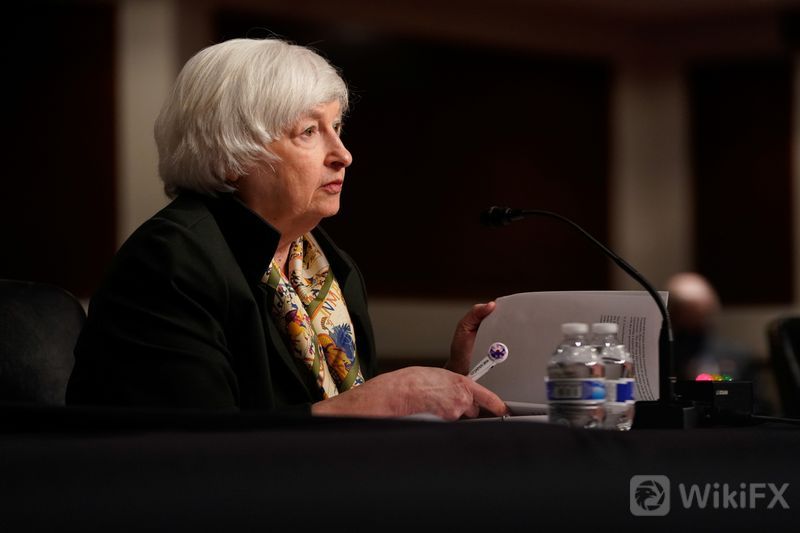
The Omicron variant of COVID-19 could slow global economic growth by exacerbating supply chain problems and depressing demand, U.S. Treasury Secretary Janet Yellen told the Reuters Next conference on Thursday.
Yellen cited a great deal of uncertainty about the impact of the highly contagious variant, first detected in South Africa, given the severe U.S. economic slowdown caused by the emergence of the Delta variant of COVID-19 earlier this year.
“Hopefully it's not something that's going to slow economic growth significantly,” Yellen said, adding, “There's a lot of uncertainty, but it could cause significant problems. We're still evaluating that.”
Yellen said the new strain of the coronavirus could exacerbate supply chain problems and boost inflation, but it could also depress demand and cause slower growth, which would ease some of the inflationary pressures.
The spread of Omicron has roiled financial markets and prompted governments around the world to tighten travel and workplace restrictions. The United States reported its first case of community transmission of the new variant on Thursday.
Yellen, the former head of the Federal Reserve, also told the virtual global conference that she is ready to retire the word “transitory” to describe the current state of inflation plaguing the U.S. recovery from the COVID-19 pandemic, echoing comments from Fed Chair Jerome Powell earlier this week.
“I'm ready to retire the word transitory. I can agree that that hasn't been an apt description of what we're dealing with,” Yellen said.
Powell told lawmakers this week the word meant different things to different people, sowing some confusion, and it was a good time to explain more clearly what was meant.
STRONG ECONOMY
Yellen insisted that stimulus spending by the Biden administration early this year was not the major driver boosting consumer prices, which hit 31-year highs in October and are running at more than twice the Fed's flexible inflation target of 2% annually. She blamed the surging prices mainly on supply chain issues and a mismatch between supply and demand.
Yellen said the $1.9 trillion American Rescue Plan passed by Congress earlier this year had helped vulnerable Americans get through the worst of the pandemic and fueled the strong U.S. economy.
While it may have contributed to inflation “somewhat,” she said the surge was largely due to the pandemic and the massive shift in consumption towards goods and away from services.
She said the Fed should keep a close eye on rising wages to avoid the kind of damaging and long-lasting “wage-price spiral” seen in the 1970s.
Yellen, who led the Fed from 2014 to 2018, said it was up to the U.S. central bank to decide what to do about interest rates, but noted that a strong U.S. economy, which would likely prompt rate hikes, is generally a good thing for the rest of the world.
President Joe Biden's administration is working closely with the private sector to curb price increases, Yellen said, citing efforts to accelerate the loading of containers at ports and encourage domestic production of semiconductors.
She said lowering Trump-era tariffs on imported goods from China through a revived exclusion process could help ease some inflationary pressures, but would not be a “game-changer.”
While she is “open” to a visit to China to meet with government officials there on economic issues, Yellen said a trip is not currently on her agenda. But she said she would continue to engage with her Chinese counterpart, Vice Premier Liu He, on issues such as technology practices, securities markets and exchange rate practices as well as efforts to rebalance China's economy toward consumer spending.
Yellen also told the Reuters Next audience that her mind is not yet made up on whether the Fed should create a digital dollar, following China and some other countries in developing central bank digital currencies.
She said the advantages and disadvantages of such a move needed to be weighed, including possible negative effects on the banking system, and that consensus among the Fed, the Biden administration and Congress was needed to proceed.
For more blockchain news, please download WikiBit – the Global Blockchain Regulatory Inquiry APP.

Leave a Reply